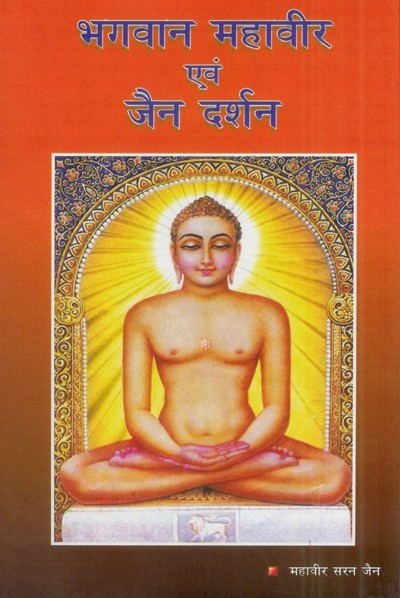1.1.1.4 Akaṣaya (dispassion) (अकषाय)
The dirtiness in the soul is kaṣāya. A shramaṇa (श्रमण) or monk removes the dirt from the soul to recognize its pure nature. It has been already described that kaṣāya has two parts - (1) attachment and (2) aversion.. In detail, the former is divided into two i.e. (1) deceit manipulation and (2) greed and the latter into two i.e. (1) anger and (2) pride. The renunciation of attachment and aversion is Akaṣaya. The subsidence and annihilation (upaśama and kṣaya) of the anger, pride, greed and deceit is Akaṣaya.
The abandoning of the attachment and aversion:
All philosophies believing on soul and Buddhist philosophy are of the same opinion on the importance of the abandoning or avoidance of attachment and aversion. In Jain philosophy this statement emphasizes over the importance that the renunciation of the attachment and aversion is right conduct. Lord Mahāvīra had recognized the fact that the subjects of the sense organs were only the efficient cause of the passions such as attachment and aversion. Even after the subjects of five sense organs, are eliminated the emotions of mind (mana) like attachment and aversion, are not avoided. The ignorant jīva due to his illusive knowledge get attached in subject of five sense organs and remains indulged in them. The ignorant jīva due to his illusive knowledge develops sense of greed and avarice in subject of five sense organs and remains indulged in them excessively. Attachment and aversion are produced only due to perverted vision. The aspirant who only wants to conquer only outward subjects of sense organs, which are source of attachment and aversion, he can never be devoid of passions. In fact, an aspirant should try to conquer those passionate emotions which are ingrained in his mind. Lord Mahāvīra was also aware of this that the emotions like attachment and aversion ingrained in the mind not only should be subsided but also be completely annihilated. By making passions absent or subsidence for one moment only a glimpse of the consciousness of soul can be seen but full self-realization cannot be attained. In order to complete annihilation of the passionate thoughts they should not only be wiped out from the one stage of conscious mind but also they should be completely wiped out from all stages of mind. And this annihilation is known to be nirjarā.
The scriptures say that the stoppage of origin of attachment and aversion is nonviolence. Nonviolence is the ultimate religion. In this stage, should the stoppage of origin of attachment and aversion be deemed as ultimate religion? Only stoppage of the attachment and aversion is deemed as the ultimate religion. The stoppage of the attachment and aversion is the state of freedom from Aparigraha (non-possession). Therefore, non-violence is only the great dharma. The culmination of the non-violence is the ultimate spiritual stage of the soul. Because of very this reason the non-violence can be considered as ultimate dharma. The sense that all other are as important as I am’ arises from the vow of Aparigraha (non-possession). And in nonviolence the sense of equality is ingrained for all creatures. Soul exists in every creature. All souls are equal as far their form is concerned. The gradual development in spiritual stages (guṇasthāna) of the pure form of the soul is described in Jain scriptures. These stages will be discussed ahead. Only this is intended to be said here that till twelfth spiritual stage the attachment and aversion exists and after these do not. The thirteenth spiritual stage is of sayogī kevalī in which the virtue of nonviolence gets penetrated up to the inner core of the soul. Because of very this reason the non-violence is the ultimate dharma; and the elimination of the passions (attachment and aversion) is the greatest dharma.
The stoppage of the passions (attachment and aversion) has been stated as non-violence from specific point of view. The violence is of two kinds. At the time when we accomplish our important works the violence occurs un-knowingly, un-willingly. At the time when we do work under the influence of attachment and aversion the violence occurs intentionally. The violence which is done intentionally & willingly binds its doer with karmic bondage. From this point of view the non-violence is the outcome of the attachment and aversion. Similarly, absence of the passionate emotions is also the non-violence.
Controlling of anger, pride, deceit and greed:
In order to avoid the attachment and aversion it is necessary to control over the anger, pride, deceit and greed. “(Anger, pride, conceit and greed these four are horrible demerits of the soul):
कोहं च माणं च तहेव मायं, लोभं चउत्थ अज्झत्थदोसा।
Kohaṁ ca māṇaṁ ca taheva māyaṁ, lobhaṁ cautthaṁ ajjhatthadosā.
(Sūtrakṛtāṅga, 1/6/26)As per provision the anger can be conquered by forgiveness (kṣamā), pride by softness (mārdava), and deceit by humility (ārjava) and to overcome greed by restraint and self-contentment (saṁyama). The main cause of speaking lie, stealing and hoarding things (parigrah) is greed. The greed can be conquered by practicing the great vows such as truth, non-stealing, non-possessiveness etc. The greed can be conquered by purity (śauca) and self-restrained and self-contentment (saṁyama). The background of nirjarā is prepared by the practice of truth, renunciation, penance, relinquishment and destitution and celibacy.
A shramaṇa (श्रमण) or monk, apart from practicing great vows and five rules of carefulness, on the basis of many other practices and methods, becomes enlightened. The original nature of the soul is the pure consciousness devoid of attachment and aversion. Pure consciousness is the instinct nature of that soul which is the devoid of passion. Ten characteristics of the soul are - forgiveness (kṣamā), softness (mārdava), humility (ārjava), purity (śauca), truth (satya), restraining (saṁyama), penance (tapa), relinquishment (tyāga), destitution (ākiṅcanya) and celibacy (brahmacarya). These are ten main characteristics of religion. A householder can be satisfied only by partial practice of these vows. His life remains replete with peace. The harmony spreads in his social and family life. A shramaṇa (श्रमण) or monk has to practice these vows in an excellent way.
 Dr. Mahavir Saran Jain
Dr. Mahavir Saran Jain
